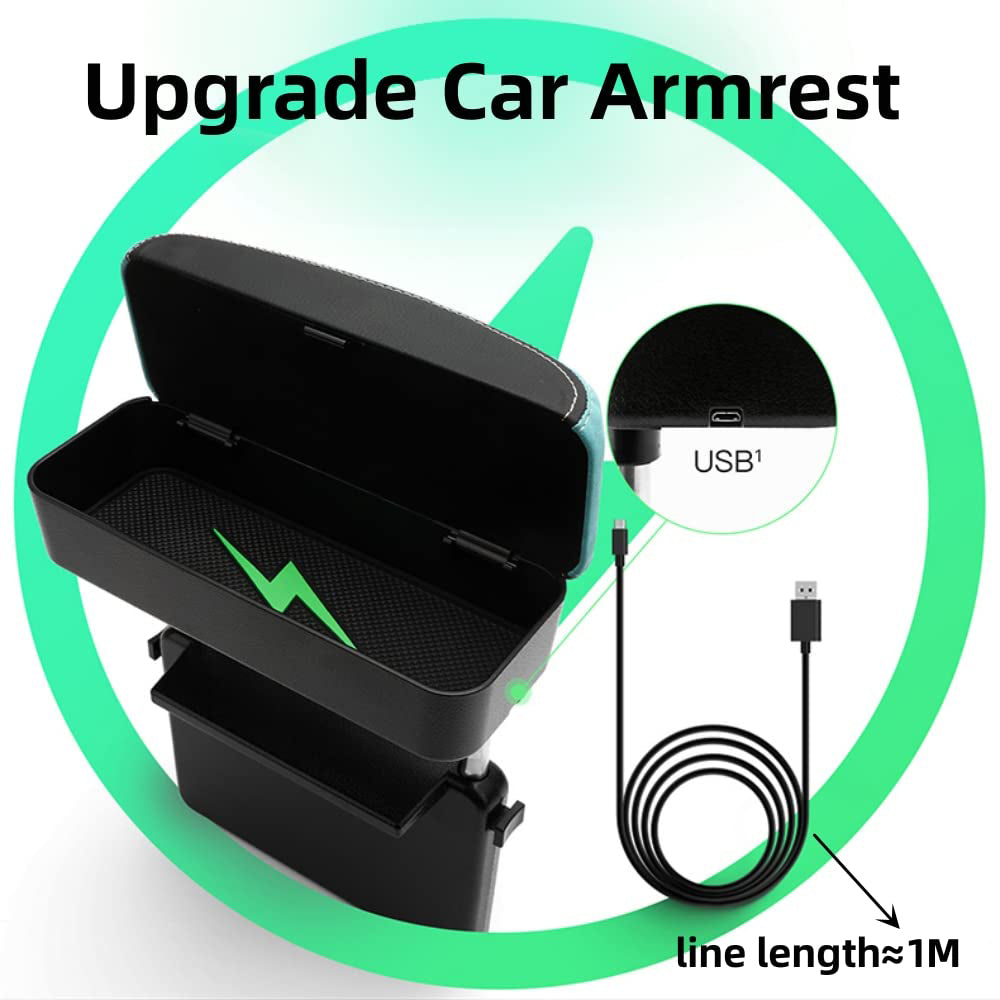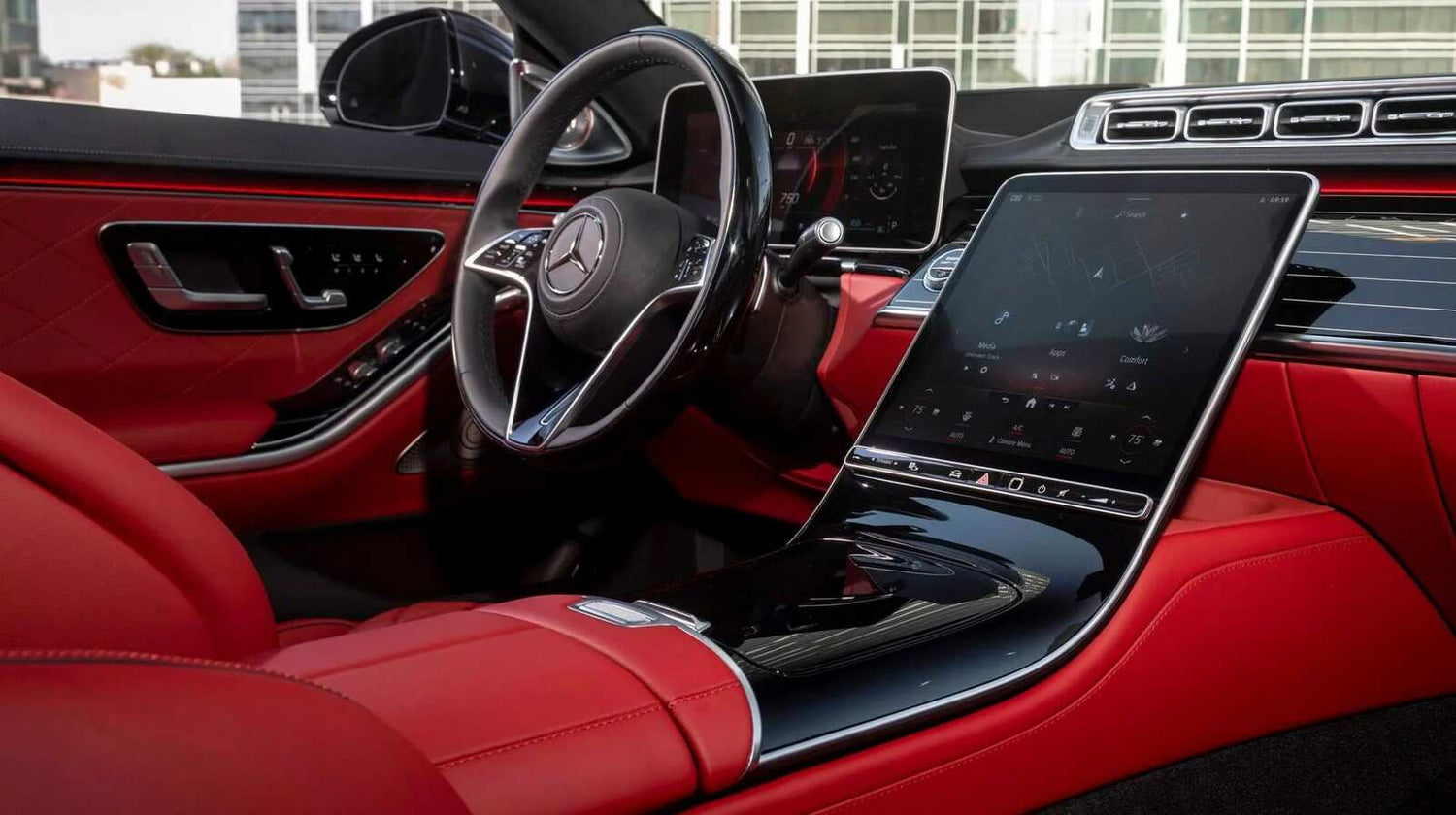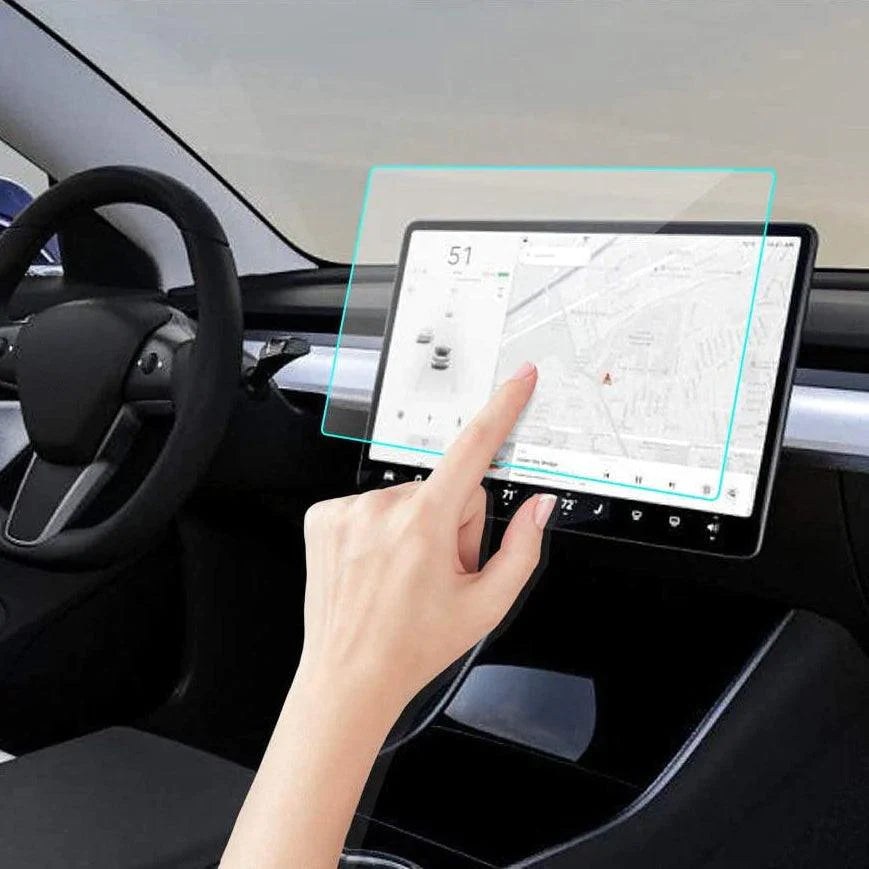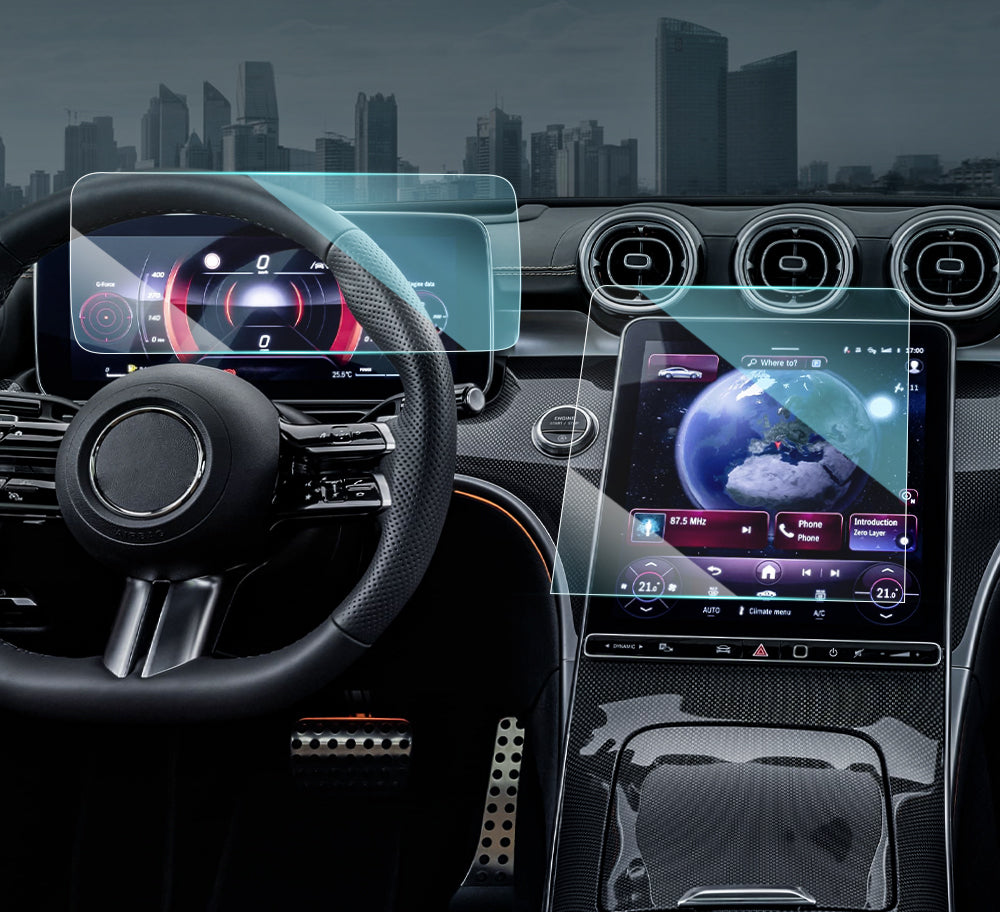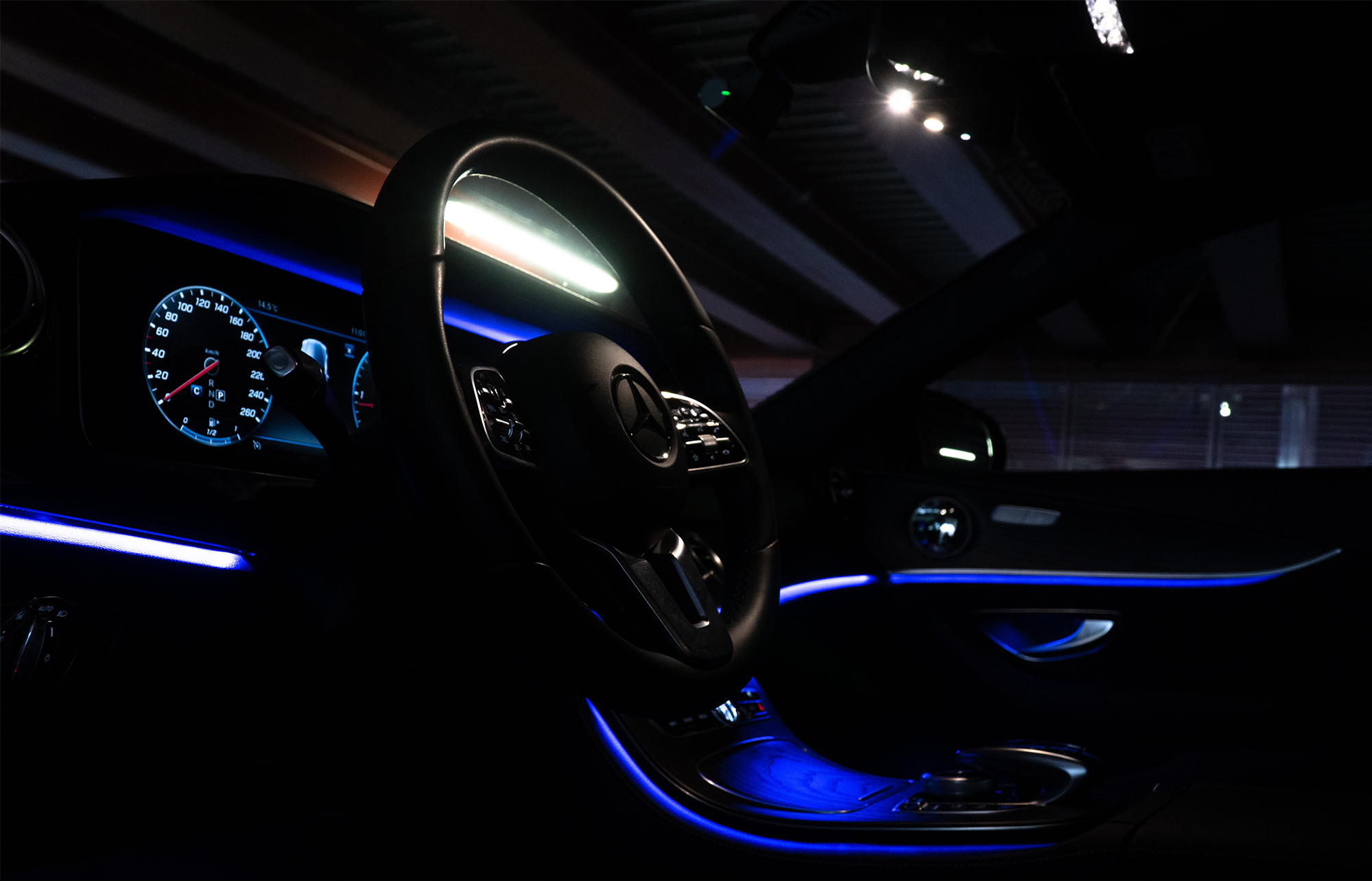With modern cars packed with tech, touchscreens are now a staple in most vehicles. From GPS to entertainment systems, your car’s touchscreen is crucial to your driving experience. But how do you protect it from scratches, fingerprints, and damage? That’s where car screen tempered glass protectors come in. In this guide, we’ll break down what these protectors are, the materials and technology behind them, and why every car owner should consider one.
What is a Car Screen Tempered Glass Protector?
A car screen tempered glass protector is a layer of specially treated glass that’s designed to protect your vehicle’s touchscreen from scratches, impacts, and wear. It’s made from reinforced glass, usually with a hardness rating of 9H, which is tough enough to resist sharp objects like keys or even small stones.

Key Materials and Types of Protectors?
There are several types of screen protectors available for cars, each made from different materials with specific features:
1.Tempered Glass: The most popular option, tempered glass protectors offer high durability and excellent protection. Their 9H hardness makes them highly resistant to scratches and impacts.
Advantages:
- Scratch Resistance: Protects against everyday hazards like keys or coins.
- High Transparency: Maintains screen clarity and visibility.
- Easy Installation: Simple to apply and remove without air bubbles.
2.PET (Polyethylene Terephthalate) Film: A more affordable option, PET films are thin, flexible plastic protectors.
Advantages:
- Cost-Effective: Great for budget-conscious car owners.
- Ultra-Thin: Adds no noticeable thickness to the screen.
- Easy to Replace: These films are easy to switch out when worn.
Disadvantages:
- Limited Durability: Not as strong as tempered glass; can be easily scratched.
3.TPU (Thermoplastic Polyurethane): A flexible, self-healing material that can fix small scratches over time.
Advantages:
- Self-Healing: Small scratches disappear on their own.
- Flexible: Perfect for curved screens.
Disadvantages:
- Collects Dust: TPU surfaces tend to attract dust and fingerprints.
Why Should You Use a Car Screen Protector?
1. Protect Against Scratches and Damage
Daily use of your car’s touchscreen exposes it to the risk of scratches, dirt, and even impacts. Without protection, replacing or repairing a damaged car screen can cost hundreds of dollars. A tempered glass screen protector offers a simple, cost-effective way to prevent these issues.
2. Maintain Screen Visibility
A dirty or scratched screen can affect your visibility while driving, making navigation or accessing features harder. A clear, smudge-free screen is essential for safe driving, and a protector helps maintain that clarity by keeping fingerprints and smudges at bay.
3. Enhance Screen Longevity
Protectors act as a buffer between your fingers, keys, and other objects that may come into contact with the screen. By absorbing impacts and preventing wear, you extend the life of your touchscreen, keeping it functional and responsive for years.
4. Special Features Like Anti-Glare and Blue Light Filtering
Many advanced tempered glass protectors come with features like anti-glare coating, which reduces the reflection of sunlight on the screen, improving visibility in bright conditions. Others offer blue light filtering, reducing eye strain during nighttime driving.
Discover the best anti-glare screen protectors
A car screen tempered glass protector is a small investment that can make a big difference. It protects your touchscreen from scratches, keeps it clean, and can even improve your driving experience by reducing glare or blue light. Whether you’re driving a high-tech Tesla or a trusty Toyota, a screen protector is an essential accessory for any modern car owner.
Ready to protect your car’s touchscreen? Browse the best tempered glass protectors here and get peace of mind knowing your car screen is safe!

